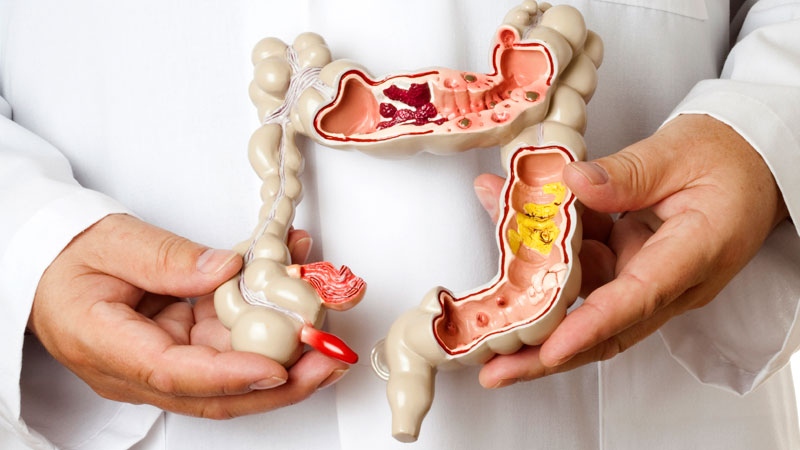Causes:
The exact cause of IBS remains unclear, but several factors may contribute to its development. Possible causes include:
- Altered Gut Motility: IBS is associated with abnormal contractions of the muscles in the digestive tract, leading to either increased or decreased bowel movements.
- Abnormal Nervous System Signals: Disruptions in the communication between the brain and the gut can result in heightened sensitivity to normal bowel sensations.
- Gut Microbiome: An imbalance in the gut’s microbiome, the community of bacteria residing in the digestive system, may play a role in IBS.
- Food Sensitivities: Certain foods or dietary triggers may worsen IBS symptoms in some individuals.
Symptoms:
The symptoms of IBS can vary widely among affected individuals. Common signs and symptoms include:
- Abdominal Pain and Discomfort: This is often relieved after a bowel movement.
- Altered Bowel Habits: IBS can cause diarrhoea, constipation, or alternating episodes of both.
- Bloating and Gas: Excessive gas and bloating are common complaints in individuals with IBS.
- Mucus in Stool: Some people with IBS may notice mucus in their stool.
Diagnosis:
There is no specific test to diagnose IBS. Instead, healthcare providers make a diagnosis based on a combination of symptoms and the absence of other underlying medical conditions. To rule out other possible causes, diagnostic tests may include:
- Blood Tests: To check for signs of infection or inflammation.
- Stool Tests: To rule out infections or other gastrointestinal conditions.
- Colonoscopy or Endoscopy: These tests allow visualization of the digestive tract and the detection of other gastrointestinal disorders.
Treatment:
The treatment of IBS focuses on managing symptoms and improving the patient’s quality of life. Approaches to treatment may include:
- Lifestyle Modifications: Dietary changes, stress management techniques, and regular exercise can help reduce symptoms.
- Medications: Over-the-counter or prescription medications may be prescribed to manage diarrhoea, constipation, or abdominal pain.
- Dietary Modifications: Identifying and avoiding trigger foods can be beneficial. In some cases, a low-FODMAP diet, which limits fermentable carbohydrates, may be recommended.
- Probiotics: Some studies suggest that probiotics may help improve symptoms by restoring gut microbiome balance.
- Psychological Therapies: Cognitive-behavioural therapy (CBT) and other psychological therapies can be effective in managing stress and anxiety, which may worsen IBS symptoms.
Irritable Bowel Syndrome is a chronic gastrointestinal disorder that can significantly impact a person’s daily life. While the exact cause of IBS remains uncertain, various factors, including altered gut motility, nervous system signals, and the gut microbiome, may play a role. The symptoms of IBS can vary, but common signs include abdominal pain, altered bowel habits, and bloating. Diagnosis is typically based on symptom evaluation and the exclusion of other conditions through diagnostic tests. Treatment options for IBS focus on managing symptoms through lifestyle modifications, dietary changes, medications, and psychological therapies. By understanding IBS and working with healthcare providers, such as a gastro doctor in Dera Bassi, to develop a personalized management plan, individuals with IBS can find relief and improve their overall well-being.





